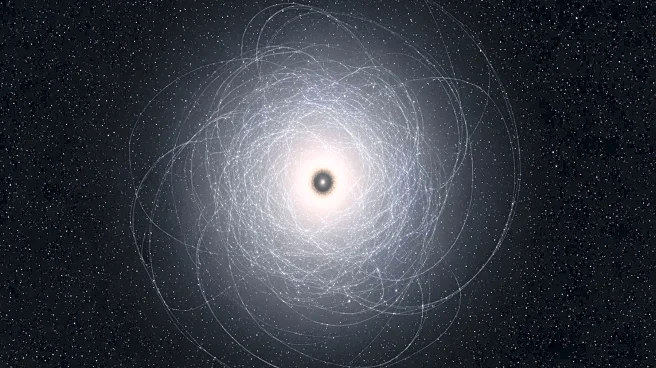What's Happening?
A dwarf galaxy, AGC 727130, located 100 million light years away, is losing its star-forming gas due to the cosmic web. Researchers from Columbia University observed the galaxy using the Very Large Array
in New Mexico and found that its gas is being stripped away by ram pressure stripping as it moves through the cosmic web. This process quenches the galaxy, preventing it from forming new stars.
Why It's Important?
The discovery of a galaxy being affected by the cosmic web provides insight into the interactions between galaxies and the large-scale structure of the universe. Understanding these processes can help address the missing satellite problem in cosmology, which predicts more dwarf galaxies than observed. This research contributes to our knowledge of galaxy evolution and the role of cosmic forces in shaping the universe.
What's Next?
Future observations with large radio telescopes will map gas across vast areas of the universe, potentially revealing more galaxies affected by the cosmic web. These studies will help refine models of galaxy formation and evolution, providing a clearer picture of the universe's structure.
Beyond the Headlines
The study of galaxies interacting with the cosmic web challenges existing theories of galaxy formation and highlights the complexity of cosmic interactions. It underscores the importance of advanced observational techniques in uncovering hidden aspects of the universe.









